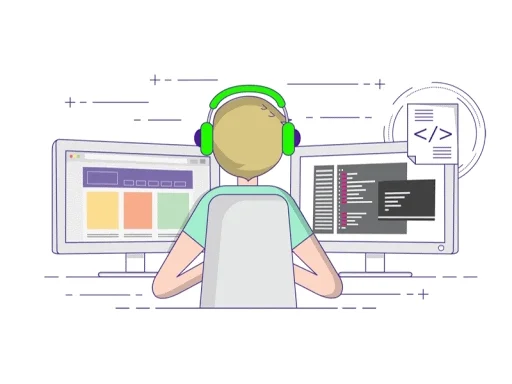We live in a time of high-stakes assessment and worldwide comparability, which has necessitated a thorough examination of the world’s educational institutions. The educational underpinnings that used to be something to be proud of are now being called into questioning as to whether or not this is a worthwhile education. Most educational systems are dreadfully underprepared to scale up for this liberal view and widespread reality; the shift away from prescriptive skillsets perfect for an industrial concept, and toward creativity, advancement, entrepreneurship, and non-cognitive abilities are indicated to be more appropriate and beneficial for 21st Century career prospects. To stay up with the speed of innovation and the combination of mitigating variables that have shifted the future’s course, today’s youngsters must accelerate. According to the information provided in https://www.educationworld.com/teachers/does-today%E2%80%99s-education-prepare-students-rapidly-changing-and-complex-world:
1. Getting children ready for a global labour market
In a fast-changing and complicated world, it is recognised, as I found in the book titled The World is Flat, that today’s essential educational principles and demands are becoming more outdated. Electronic, smartphone, individual, and social flatteners are extremely powerful in regards to opening up connections and shutters of possibility that are not only transformational but also disruptive. This is supported by information from another book I read, 21 Lessons for the Twenty-First Century. Primary schooling, as we recognize it today, would not satisfy the demands of kids in a fast-changing global context, it is stated. An industrialized age’s primary training is not similar to primary training in 2020, 2030, or even beyond. The paradigm has evolved, necessitating the development of new abilities for a new era.
People from all around the world can now interact, cooperate, and work together in unprecedented ways thanks to these worldwide platforms. To stay up with technology and maintain speed, the workforce should become more flexible; as a result, youngsters entering the labour market for the initial time would be more employable. It is inconceivable to ignore these unavoidable realities.
2. On a worldwide scale, there is a sense of community harmony
Because of the profound shifts in our knowledge of how the brain works and the nature of education, schools must not just improve but also reinvent themselves. Rather than focusing on specific tasks, schools should stress process mastery and the capacity to know what to do when you’re stuck. To put it another way, today’s and tomorrow’s children must be nimble in a variety of settings, like mathematics and reading, rather than just master specialised information in each discipline. They must also learn to work with others who are distinct from themselves.
By teaching students to think of themselves as global citizens instead of citizens of a specific geographic society, state, or country, the world may become more sensitive to distinctions and people may be able to collaborate on more pressing global issues, such as preserving our earth for upcoming generations.
3. Educational Reform and Innovation
To expand the breadth of competence in today’s schools, the learning method must fundamentally shift, which will necessitate advancement. Collaborating and generating knowledge together should become the norm, not the exception, as professional teacher expertise shifts from implicit to explicit. It was discovered in a meta-analysis of what succeeds in universities that instructors collaborating mattered. Learning communities can become an example of learner behaviour that revolutionises student perspectives of problem-solving and conflict resolution.
The magnitude of change required to prepare a future workforce capable of competing on a global basis cannot be understated. The type and quality of education provided in schools would make a huge difference. People with the necessary attitude, expertise, and competence, who are enthusiastic about educational reforms and advancement, and who are eager to learn from a wider perspective, must lead progressive learning settings. Change must begin now, or we risk depriving a whole generation of youngsters of the enormous possibilities that await them.
How to prepare students for the future?
I think that school education is many kids’ major preparation for universities, professions, and life beyond school. Although elements of our existing school curriculum assist kids in moving toward their goals, it is up to educators to close the gaps in the areas where they still exist. These few teaching practises as discussed in https://funfreshideas.com/3-easy-ways-to-prepare-your-students/ can help your kids prepare for their future lives.

1. Group Work Must Be Reimagined
Group work is seen as a great technique to teach children the ideas of teamwork for understandable reasons. Getting along with people is essential for success in education, career, and other aspects of life.
Collaboration must be prioritised in group initiatives. Putting too much emphasis on the final result frequently leads to a negative learning environment. In other words, one or two learners may wind up taking up the entire assignment while the rest of the class is absent.
In these typical circumstances, everyone in the group stands to gain more knowledge if their marks are based on communication and involvement. High performers have the chance to encourage and lead others. These are the kinds of opportunities that can have a long-term influence on pupils.
By pushing pupils to avoid cooperation through group work, the existing curriculum deepens the gap between the school and the entire world. Teachers should do everything they can to change the narrative.
2. Critical and creative thinking should be combined
The school curriculum promotes the idea that some classes are opposed to one another. Physics and Art, for instance, are often regarded as being on opposing extremes of the learning scale.
I believe that students will benefit from an atmosphere that opposes this idea, regardless of what subject you’re teaching. Art and science both have a place in the world.
One of the finest methods that can help your children in the real world is to encourage them to be imaginative while addressing challenges. Children should depend on their problem-solving abilities once school is ended and they are no longer members of a program that drives them toward a bachelor degree. I think that to navigate the difficult worlds of job hunting, money management, and maturity in general, creative, critical thinking is required.
As a consequence, even when children fail, they must be praised for their inventiveness. This creates an atmosphere where learners could play to their talents more effectively. At the absolute least, it would show kids that the only time they lose is when they don’t attempt at all.
Given the fact that our present school curriculum is obsolete, instructors may equip kids with the skills they need to succeed in life. The most vital abilities kids may develop before heading out into the workplace are teamwork, imagination, and a good awareness of the internet.
What are the skills that students will require in their careers?
As I have discussed above how to prepare students for their future, now we need to discuss the skills that they will need in their future.
We might not even anticipate what is waiting for our children in the years ahead, but we do know what expertise they would require once they arrive. As per the information provided in https://www.teachthought.com/the-future-of-learning/skills-students-need/ discussed below are a few survival qualities, as well as how they might be used in the school.
1. Entrepreneurship and initiative
Prep work: Children must be ready to take initiative and make a positive contribution to society. These abilities must be encouraged in our schools and society. I think that children must be asked for more than a checklist of school rules and punishments since they may be tremendously creative and engaged in creating their perspective in the school.
Make them aware that you are approachable and eager to hear any suggestions they may have for enhancing the lecture hall or institution. Even if an idea fails, assist them in organising and implementing their ideas. It could be a useful lesson in analysing what went incorrect and considering how to enhance the concept. Since they are terrified of defeat, children must never be hesitant to attempt.
2. Obtaining and analysing data
Prep work: Today’s children have unprecedented access to data. The Internet is a fantastic survey method that could be either their closest buddy or their worst adversary. It is simple to obtain information, but it is more difficult to obtain excellent information. Students must learn how to filter through the multiple online pages accessible on a given topic to get what they require and believe what they discover. They must distinguish between real facts and factually sounding viewpoints.
Several students nowadays may go to answer websites to acquire data, not giving much thought to how the content was written by someone who may or may not is true or experienced in a particular area. We could think aloud about Web researching tactics in a similar manner that a teacher may think aloud about reading strategies. Learn about a subject with your learners by projecting your screen onto the wall. Demonstrate to them how to explore and how to avoid getting deceived by such answer sources!
3. Innovation and Curiosity
Prep work: Our students come to us with a natural curiosity about their surroundings and a desire to learn more about them. Their imaginations are wild and free, allowing them to create a limitless number of functional and impractical items. Our job as educators is less about teaching children how to be curious and inventive and more about preventing them from losing that ability. We must support and motivate them to acquire these abilities and educate them on how to use them creatively and effectively. Consider a young kid who enjoys the military and machines but despises princesses.
Because we don’t all enjoy and respect similar things, educators should be very cautious in how they foster and enhance their learners’ creative thinking and innovativeness. We could educate kids on what to do in specific scenarios without making them feel as though their views are incorrect or harmful.
